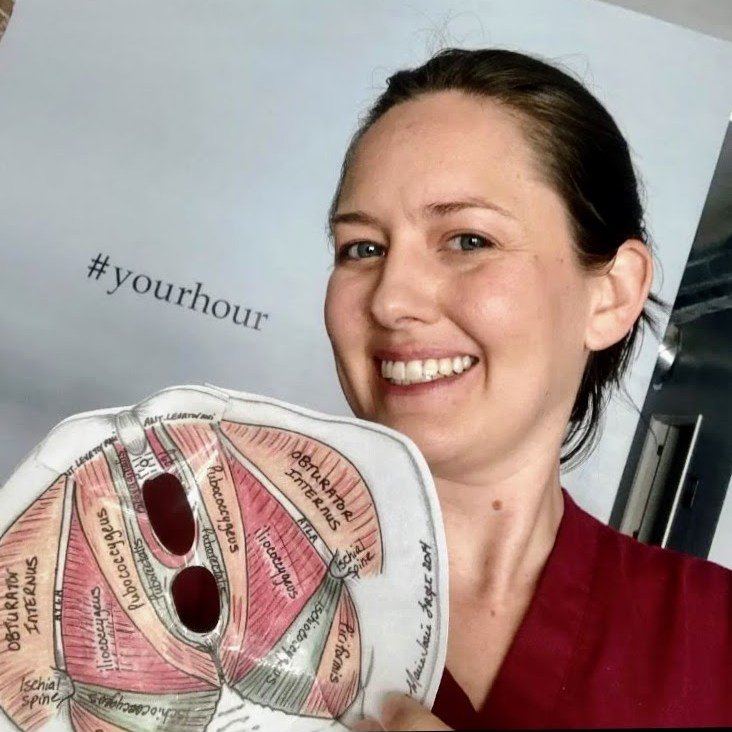Pelvic Floor Physical Therapy {the most important postpartum appointment for mother}
Pelvic floor physical therapy is gaining in popularity, but what is it really about and why is it the most important postpartum appointment that you will make for yourself?
Many moms find that their bodies change after having children and many are told that the most challenging of these changes are just a normal part of motherhood. This used to be true before pelvic floor physical therapy evolved into what it is today. Moms from generations past are finding relief that pelvic floor physical therapy is bringing that kegels never did. But you don't have to wait. You have the luxury of knocking out these symptoms as soon as they pop up. And maybe even more exciting, with an early postpartum visit you may never have to experience them at all.
Common postpartum pelvic floor symptoms:
•Peeing with laughing, coughing, sneezing, exercising, and other SUI presentations •Fecal incontinence •Increased urinary urgency and frequency•Constipation, hemorrhoids, and/or anal fissures•Scar pain-cesarean or vaginal•Pain with sex•Fear of returning to sex•Reduced pleasure during sex•Prolapse•Injury with returning to exercise•Body pain-including back, pelvis, neck, sciatica, and tailbone •Diastasis recti and/or umbilical hernia•And even symptoms like mommy tummyThese symptoms are related to the ways our bodies slowly adapt to support a growing baby throughout pregnancy, intensely opening to bring the baby into the world, and then suddenly returning to a body without a baby inside while simultaneously healing itself. The slow stretch and sudden release can leave bodies in a pattern of a new normal without fully returning to its pre-pregnancy patterns of movement.
It also can leave the pelvic floor muscles in a guarding, frozen (think fight/flight/freeze), spasming, scarred, and/or weak state after healing. A healthy pelvic floor supports the body as the bottom of the core, supports the pelvic organs, is involved in breathing, holds and releases urine and feces, has roles in sexual function, and helps in pumping lymph and venous fluid. It is not surprising that so many postpartum symptoms involve these same systems.
Pelvic floor physical therapists balance the pelvic muscles, but we don’t stop there. Your entire body is involved in bringing this baby into the world and every bit of it deserves our attention. We focus on breathing, reminding the ribs/pelvis/and abdominal organs they can move back to a pre-baby place, supporting muscles that are overworking, waking muscles that are underworking, balancing posture, establishing new habits, supporting stress resiliency, and so much more. We help you return to feeling like you again.
FAQ
•Can I bring my baby?
Yes, if you’d like! It’s your choice.
•When should I schedule a postpartum appointment?
All I ask is to wait until your lochia (postpartum bleeding) stops. Otherwise, come as early or late as you are comfortable. The vaginal pelvic floor exam is a helpful tool, but there are so many more techniques we can use if you are on pelvic rest (typically the first 6 weeks after delivery). Also, don’t feel pressured to come in at the 6 week mark if you’d like to wait a bit longer. There is no special window of time that we will miss.
•Should I come while pregnant?
If you have any symptoms already, then I highly recommend it! Otherwise, consider coming in to cover topics like how to push, birth positions, how to listen to your body during pregnancy and delivery, how to exercise for your pregnant body, common pregnancy misconceptions, and how to care for your body in pregnancy and early postpartum.
•Do I need a vaginal pelvic floor exam?
I highly recommend having one so that we can assess and treat the pelvic floor efficiently and directly. I treat pelvic organ ligaments and fascia internally as well. However, it is never required.
Schedule your postpartum appointment with Dr. McMillion at www.graham-pt.com.
Please do not hesitate to reach out with any questions about pregnancy, postpartum, or pelvic floor physical therapy to the email amy@graham-pt.com.
Amy McMillion, PT, DPT
Pelvic Health Certified through EIM
Owner of Graham Physical Therapy in downtown Graham, NC
